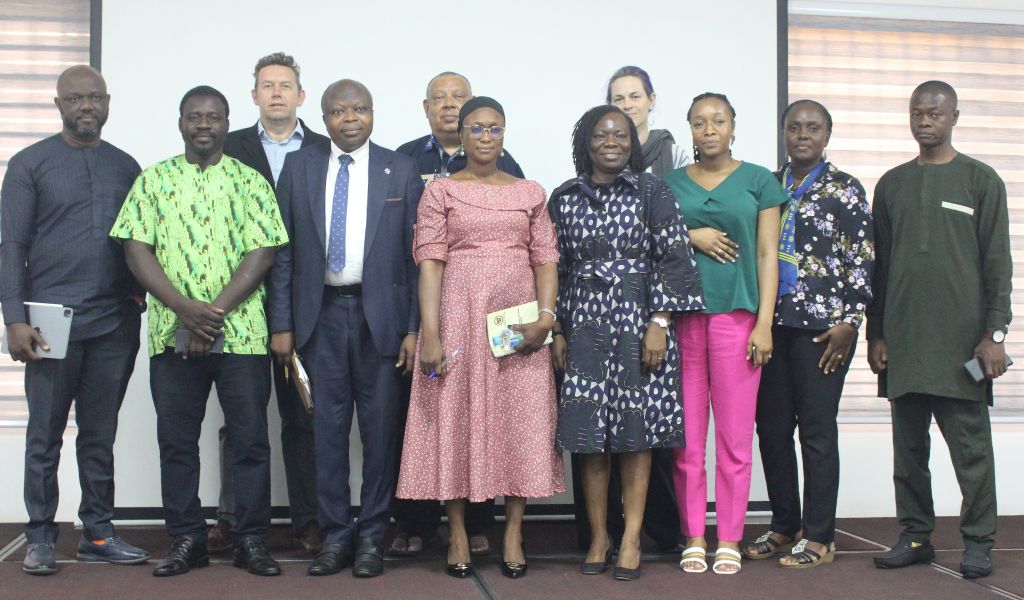IDS has been working with partners in Ghana in recent years as part of two initiatives: firstly, a tripartite Memorandum of Understanding between the University of Sussex and the University of Ghana (UG), and secondly the IDS Ghana Development Hub, a networking and engagement platform where representatives from different sectors convene to apply current thinking to critical development issues.

As part of that work, two IDS opinion articles have just been published with partners on the issues of regulation around deforestation impacting farmers in Ghana, and problems with water and sanitation facilities in schools. On the broader issue of how partners can work together to promote engaged, transdisciplinary research that connects to policy and activism, the University of Ghana and IDS held a panel earlier in the year.
IDS, UG and University of Sussex (UoS) organised an event titled ‘Governing transitions towards sustainable water and energy in Ghana: the role of research’. The discussions highlighted how issues of governance and equity, and a need for evidence, cut across the water and energy sectors. It brought together speakers from civil society and local government, as well as research sectors.
The event also served to consolidate partnerships between IDS, UoS, major Ghanaian research universities – University of Ghana, University for Development Studies, Kwame Nkrumah University of Science and Technology, University of Cape Coast, and Simon Diedoung Dombo University of Business and Integrated Development Studies – alongside key development-oriented groups in Ghana.
The need for evidence-driven WASH programming
The panel at the event on ‘The role of research in supporting clean water and sanitation in Ghana’, was hosted by Vida Duti, country director of IRC Ghana, and featured experts such as Dr Hikimah Baah from the UoS, Adam Wahabu, Regional Director of the Environmental Health and Sanitation Department (EHSD) And Amin Yahaya, the Programs Director for Integrated Action for Community Development (INTAGRAD). These panellists highlighted the different challenges to WASH solutions in Ghana, including within schools, slums and rural areas. Discussion between the experts focused on the need for both government policies and NGO and donor programmes to be evidence-driven, and for Ghanaian voices to be prominent in defining WASH needs.
Multiple voices in the energy transition
Another panel on ‘Equitable transitions to energy security and sustainability in Ghana’ was moderated by Prof. Albert Ahenkan, University of Ghana. Here, speakers including Prof. Pete Newell, UoS, Dr Hawa Mahama from the Institute of Local Government Studies And Mr Benjamin Boakye, Executive Director of the Africa Centre for Energy Policy, spoke on issues of governance and local government capacity relating to energy transitions in Ghana, including the degree of trust in off- and on-grid solutions.
Crosscutting importance of transdisciplinarity
In synthesising insights from the two panels, the chair, Prof. Chris Gordon from UG, emphasised two key synergies the event had highlighted, both of which are important for conducting engaged research in Ghana, yet still relatively rare.
Firstly, the need for forums convening actors from across sectors, namely, government, civil society and research. Secondly, the need to emphasise and understand the crosscutting themes of equity and sustainability that link different thematic areas such as water and energy. These themes are also critical to other sectors, notably, food systems, which is connected to energy and water through the concept of the food-water-energy nexus, but others too, such as health.
Other issues cut across energy and water, including nepotism and poor distribution, and inaccurate generalisation of WaSH and energy needs, which obfuscates policy making and programming. The panel theme of equity elicited the question of whose voice counts in transitions and resource revenue distribution, how revenues are used to reach those most in need, and whether and how governance processes can become more inclusive, for example involving public engagement and participation. There was a clear call for more of the engaged research that was showcased by participants, and to ensure findings are intelligible to different groups.
The event and the continuing work of the Ghana Development Hub partners show how links between institutions within and beyond the research sector are critical for bringing fresh thinking to critical transitions. Cross-sectoral and transdisciplinary partnerships, between institutions in different parts of Ghana and beyond, are important to understand how transitions can become sustainable and equitable. This is achieved by bringing practitioners, researchers, influencers, advocates and policy actors under the same roof to challenge thinking around sustainability, in Ghana and beyond.
